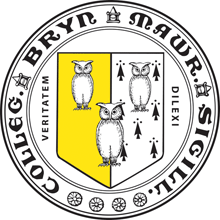Eric Roberts
Professor of Computer Science at Stanford University
Abstract
As colleges and universities respond to declining enrollments in computer science, a number of institutions have sought to reduce the focus on programming in the undergraduate curriculum. I believe that such an approach is misguided, not only as a strategy for attracting more students to the field, but also in terms of meeting the workforce needs of the software industry. The demand for highly productive employees with advanced software- development expertise is huge, and universities are producing far too few graduates with the necessary skills and talent. The discipline of programming, however, has changed dramatically over the last 25 years, and university curricula and pedagogical approaches have not always kept pace. In this talk, I will offer some general reflections on the nature of programming in the 21st century and propose several initiatives designed to ensure that the educational system can produce the technologically sophisticated workforce on which our economy depends.
Thursday, November 6, 2008, 7:30 pm
Science Center Room 101
Swarthmore College, Swarthmore, PA USA
Science Center Room 101
Swarthmore College, Swarthmore, PA USA
 DR. ERIC S. ROBERTS
DR. ERIC S. ROBERTSBiographical Information
After receiving his Ph.D. in Applied Mathematics from Harvard University in 1980, Eric Roberts taught at Wellesley College from 1980-85, where he chaired the Computer Science Department. From 1985-90, he was a member of the research staff at Digital Equipment Corporation's Systems Research Center in Palo Alto, California, where he conducted computer science research, focusing on programming tools for multiprocessor architectures. In September 1990, Roberts joined the Stanford faculty, where he is now Professor of Computer Science and the John A. and Cynthia Fry Gunn University Fellow in Undergraduate Education.
From 1990 to 2002 and again in 2005-06, Professor Roberts was Associate Chair and Director of Undergraduate Studies for Computer Science. In that capacity, he was the principal architect of Stanford's introductory programming sequence, which for many years held the distinction of being the largest course at Stanford. He has also written four computer science textbooks that are used at many colleges and universities throughout the world. His research focuses on computer science education, particularly for underserved communities. From 1998 to 2005, Roberts was Principal Investigator for the Bermuda Project, which developed the computer science curriculum for Bermuda's public secondary schools.
While at Stanford, Professor Roberts has received several university- level teaching awards, including the Bing Fellowship, established "to recognize excellence in teaching and a committed interest to the teaching of undergraduates"; the Dinkelspiel Award, which recognizes "distinctive and exceptional contributions to undergraduate education"; and the Laurance and Naomi Carpenter Hoagland Prize, awarded for excellence in undergraduate teaching. In January 2002, Roberts was named one of the first eight University Fellows in Undergraduate Education, which are designed "to reward faculty who make truly outstanding contributions to Stanford's undergraduate experience."
Professor Roberts has been active in professional organizations dedicated to computer science education. From 2005 to 2007, he served as co-chair of the Education Board of the Association of Computing Machinery (ACM) and was for many years on the board of the ACM Special Interest Group on Computer Science Education (SIGCSE). From 1998 to 2001, Roberts served as co-chair and principal editor for the ACM/IEEE- CS Joint Task Force on Computing Curricula 2001, which published a detailed set of curriculum guidelines in December 2001. He also chaired the ACM Java Task Force from 2004 to 2006. In 2003, Roberts received the SIGCSE Award for Outstanding Contribution to Computer Science Education. Professor Roberts is a Fellow of the ACM and the American Association for the Advancement of Science (AAAS).
Professor Roberts has been active in several organizations seeking to promote socially responsible use of science and technology. He is past president of both Computer Professionals for Social Responsibility, a public-interest organization of computer scientists and other professionals concerned about the impact of computer technology on society, and Student Pugwash USA, which encourages students to use their training in science and technology to create a better world. In 1999-2000, Roberts was the Eugene M. Lang Visiting Professor for Social Change at Swarthmore College.



